KSysGuard
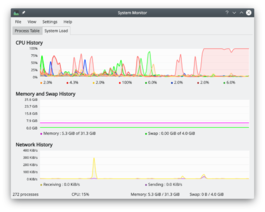 |
Καταγράψτε και ελέγξτε τις διεργασίες που τρέχουν στο σύστημά σας. |
Γενικά
Το KSysGuard, γνωστό ως Προστασία συστήματος του KDE και Επόπτης συστήματος του KDE, έχει σχεδιαστεί ώστε να παρέχει έναν απλό έλεγχο των διεργασιών χωρίς να χρειάζεται κάποια εξειδικευμένη διαμόρφωση - οι προκαθορισμένες επιλογές συνήθως απόλυτα επαρκείς. Υπάρχουν δύο φύλλα εργασιών - η σελίδα , που απεικονίζεται παραπάνω, και ο .
System Load
The screen has three displays, each representing one of the load considerations - CPU History, Memory and Swap History and Network History. If you hover over the title-bar of each section you will see detailed analysis together with a colour-key.
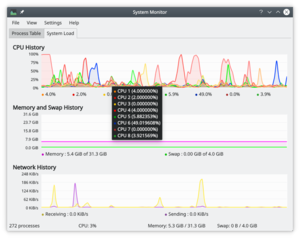 |
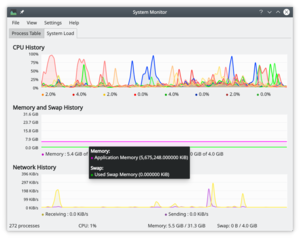 |
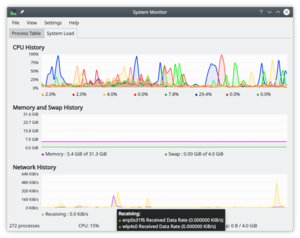 |
The Process Table
The view by default gives you an alphabetical order list of all processes running. Clicking on any column header will make this the sort column. If you have a runaway process you will find the view most useful. You can also elect to see sub-sets of the processes, by owner or program.
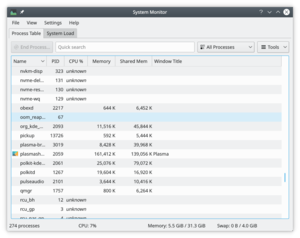 |
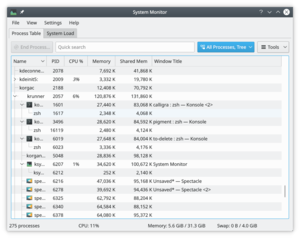 |
Hints and Tips
Ctrl + Esc brings up the Processes part of KSysGuard, which is very helpful when you are trying to find which application is using too many resources.
In KRunner (Alt + F2 or from a right-click on the desktop) there is a tiny icon to the left of the entry bar - it looks like a microwave oven - that also brings up the Process Table.
